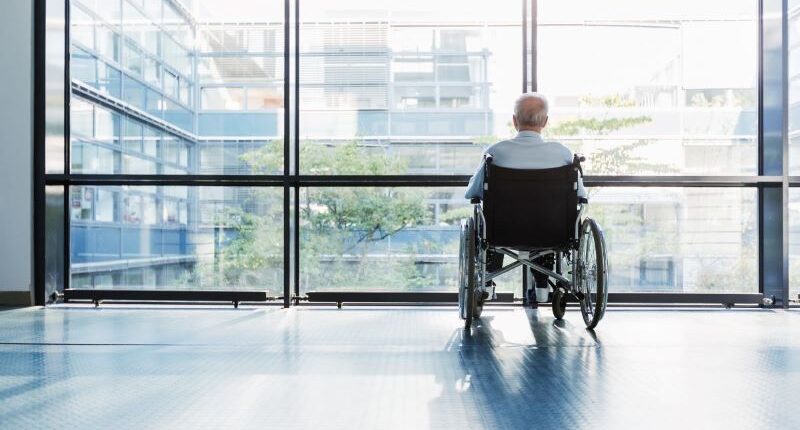Signs You Need a Nursing Home Abuse Lawyer

There are so many elderly individuals living in nursing homes throughout the United States. And unfortunately, the very people who care for them are the very ones who cause them harm. If this happens, it’s necessary to hire a nursing home abuse lawyer.
Read on to learn more.
Introduction
Do you know what can happen when an older adult’s caretakers abuse them in their nursing home? Trauma, a long list of medical emergencies, and, potentially, death.
There is no legitimate reason for this abuse, but it often comes down to overworked staff due to staffing issues – including the lack of staff in general, poor training, and burnout. Even though it is not their fault, the residents of these facilities are often the ones to take the brunt of the staff’s anger and frustration. It is not uncommon for situations such as falls or natural medical emergencies to get overlooked or not tended to, resulting in a lack of care.
So, how do you know if your loved one is the victim of nursing home abuse? Look for these signs.
Signs of Nursing Home Abuse
Nursing home abuse can present itself in many different ways. Knowing what to look out for when it comes to the care of your loved ones is essential if you want to keep them safe and out of harm’s way. Below are a few things to keep an eye out for:
- Bedsores
- Fall injuries – or reports of falling
- Physical evidence of damage without any explanation
- Sudden weight loss due to malnutrition
- Recurring infections
- Appearing overmedicated
- Being advised you have limited access to see your loved one
- Emotional changes that include agitation, anger, upset, or even withdrawn behavior
- Cracked lips reflecting signs of dehydration
- Unexplained death
It is easy to get busy with life and not visit your loved one as often as you would like. However, the best way to ensure their safety and care is to be present. Check in with them frequently and notice how they look and act. And if they have some crazy story about something that happened, don’t dismiss it or chalk it up to the fact that they are old and maybe even senile. You could be the one lifeline they have to get help.
Types of Nursing Home Abuse
Not all nursing home abuse is created equal. Many types of elder abuse can occur, including physical, emotional, sexual, neglect, financial, and healthcare fraud. Let’s take a closer look.
Physical Abuse
As its name suggests, physical abuse comes with physical injuries like bruises and broken bones. This often comes on suddenly and lacks an explanation when asked. Sometimes they will make up stories. If something doesn’t seem right, it is up to you to look further into it, such as asking the resident what happened.
Emotional Abuse
Emotional abuse deals with the individual’s emotions. Signs that someone is receiving emotional abuse include:
- Signs of fear
- Depression
- Crying
- Anxiety
- Isolation
- Fear of being alone etc.
When the abuser is nearby, these symptoms grow. Never take these signs lightly. If it seems off, investigate.
Sexual Abuse
Sexual abuse happens more often than you’d imagine. This most often occurs at the hands of the nursing staff that are directly in charge of caring for the individual. It doesn’t matter whether it is male or female; either sex could sexually abuse a resident.
Uncovering sexual abuse is challenging. It usually happens in a discreet environment, with the resident unsure about sharing it. You may notice that your loved one has withdrawn, pulled away from specific staff, acquired a sexually transmitted disease, or experienced trauma to the genitals.
Neglect
The nursing home’s job is to care for your loved one. This includes ensuring their needs are met. Daily care, like providing food and nutrition, changing clothes, bathing, changing adult diapers, and so forth, are all essential for the lives of someone in a nursing home. Calling on the nurse warrants a response when your loved one is in need. If none of this is happening, you could consider neglect or abandonment a form of nursing home abuse.
Financial Abuse
With older and even trusting residents, financial abuse comes relatively easy for those willing to take the risk. And many do. Always keep an eye on your loved one’s account, such as cash withdrawals, credit card usage, forged checks, etc. It is best not to allow personal documents, banking records, checks, or credit cards to be easily accessible in a nursing home.
When is a Nursing Home Liable for Abuse?
If you suspect nursing home abuse is taking place, how do you know whether or not the situation is one in which the nursing home should be held liable for abuse?
A nursing home abuse lawyer can review the case and make the determination. If one or more of the following fits the situation, you may be able to file a claim:
- Medical or medication errors. Failure to properly distribute drugs when and how they are needed – including giving the wrong medication – could negatively impact the resident.
- Inadequate staffing. Lack of staff impacts the quality of care
- Poorly vetted staff. A properly educated, licensed, and experienced team is necessary to keep patients healthy and happy. Failing to meet standards could make the nursing home liable.
What to Do if You Suspect Nursing Home Abuse
If you suspect your loved one is being subjected to nursing home abuse, don’t wait to take action. You can address your concerns with the facility. But, if you don’t see change quickly, it may be necessary to take the next step and contact a nursing home abuse lawyer. This skilled professional will be able to tell you the steps you need to take to help your loved one – and ensure that no one else is ever harmed there in the future.
Are you in search for a certified attorney to represent you?
Let us help you find one today!

